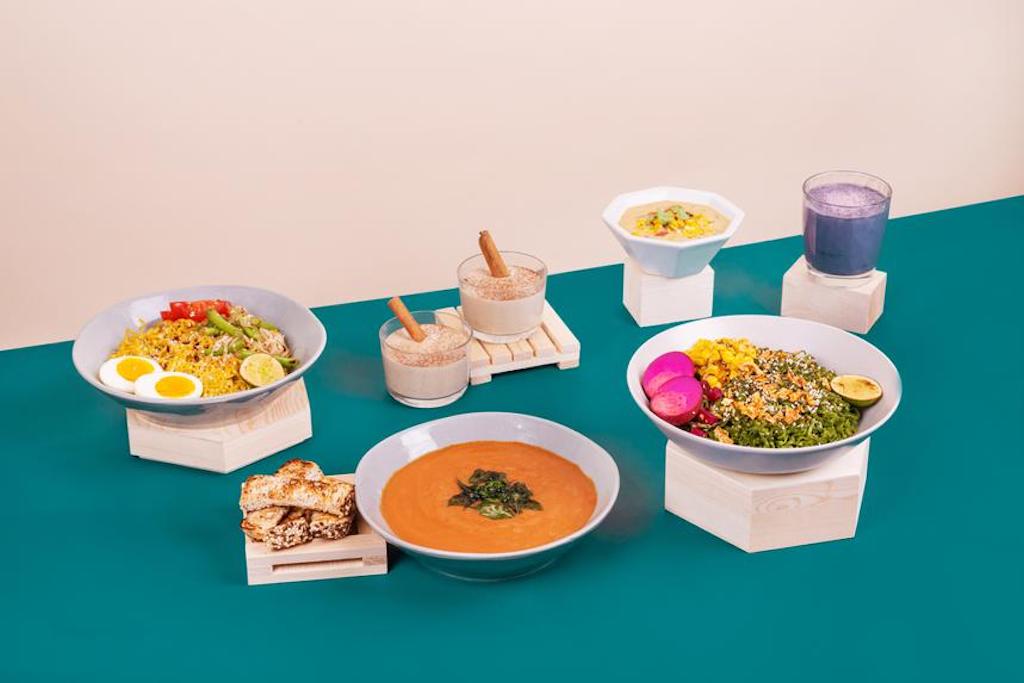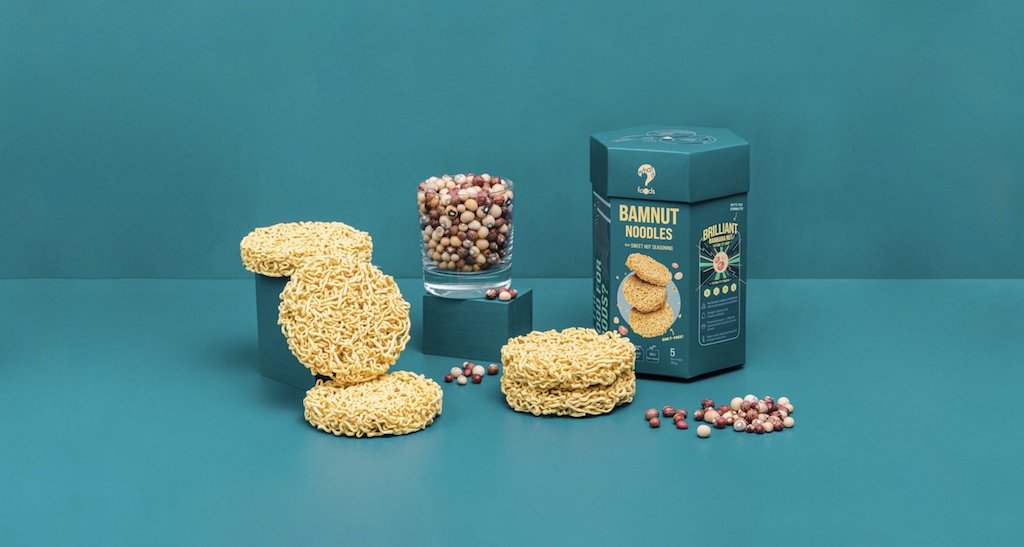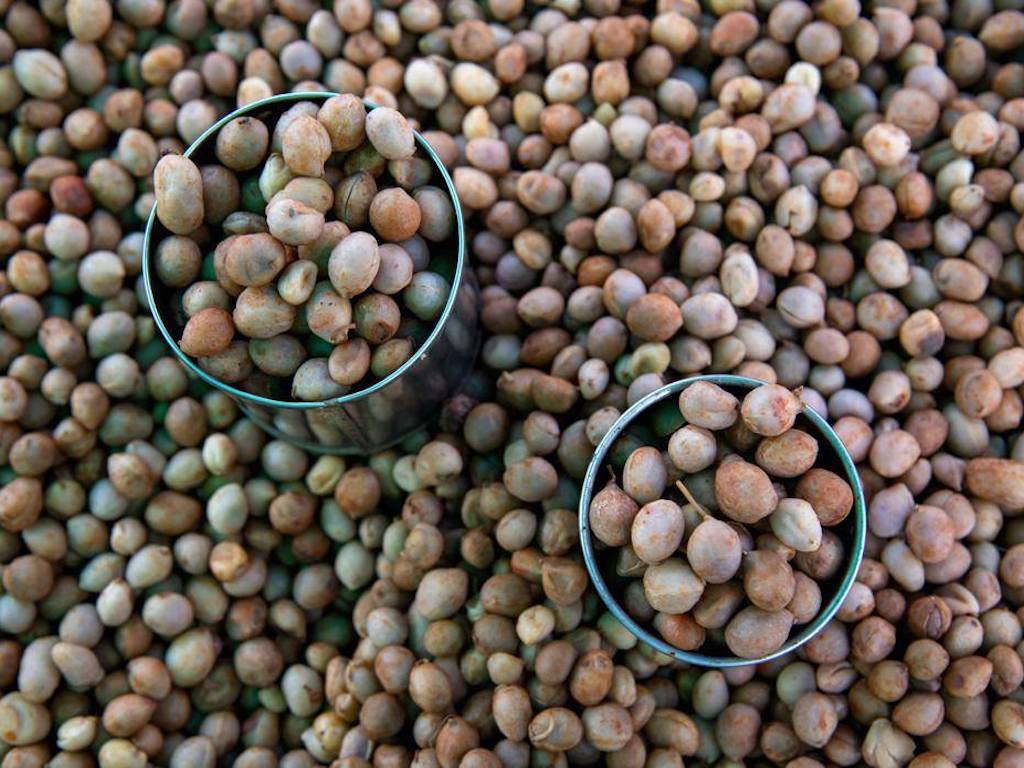4 Mins Read
Singapore-based WhatIF Foods, the sustainable foods brand launched by food tech NamZ, is planning to launch its new plant-based milk line next year. The vegan-friendly milk will be made from Bambara groundnut, a climate-resilient crop that can grow in harsh environments while also regenerating the land it is planted in.
WhatIF Foods is now ramping up production of its “future fit” Bambara groundnut crop, which the brand has dubbed “BamNuts”, ahead of launching its brand new line of sustainable plant-based milk alternative next year. The crop is native to West Africa, but the startup is now working to begin establishing its BamNut supply chain within the Asian region by small farming communities across Malaysia, Thailand and Indonesia – and WhatIF believes that this will bring both a social and environmental impact.
Speaking to FoodNavigator-Asia about the benefits of its chosen climate-resilient crop, the company’s founder and CEO Christoph Langwallner said: “Bambara groundnuts really like poor soil and water conditions, and are able to get maximum moisture out of the soil via their huge root system which can grow up to two metres deep. As a legume, it is also able to fix nitrogen around its roots to improve the soil conditions and microbiome – this means that it can regenerate the land it is planted in and bring back acreage that had previously been lost.”
Malaysia and Indonesia will be the first targets for now, but Thailand is also on the cards, especially southern Thailand as the climatic conditions are similar.
Christoph Langwallner, Founder & CEO, WhatIF Foods

While its plans to begin partnering with Asian suppliers and growers has been put on hold due to the pandemic, WhatIF has partnered with Malaysian research centre Crops For the Future (CFF) and has begun discussions in Indonesia “in the hopes of this as a future supply chain for the region”.
“Malaysia and Indonesia will be the first targets for now, but Thailand is also on the cards, especially southern Thailand as the climatic conditions are similar,” added Langwallner.
In terms of its social impact, promoting the planting of sustainable crops helps create new income opportunities for smallholder farming communities on degraded land.
“The sustainable implications are high for both regions with several layers of impact – BamNut doesn’t compete with other crops so it’s an added source of income for farmers, and it heals the soil so this can be used again,” explained the founder in the interview.
The new plant-based BamNut milks is slated to debut on the market in the second quarter of 2021, and will come in three flavours, including original, chocolate, and a low-GI sweetened version. WhatIF says that using BamNut gives the milk alternatives a whiter appearance than other plant-based milks that use almond or oats as its base.
The other key thing about this plant-based milk is that it is very micronutrient-dense with a protein content that can match that of dairy. It contains complete protein that has all nine essential amino acids, which not many plants can compete with.
Christoph Langwallner, Founder & CEO, WhatIF Foods
The new milk alternatives will also deliver a “more dairy, more nutty, or more greeny” and an “extremely creamy” taste that rivals conventional dairy products, a quality that existing substitutes on the market typically lack. It can be used in all the applications that traditional dairy products are used for, such as in baking recipes, coffee, puddings and more.

“This is something soy cannot compete with, and is due to BamNut’s starch, proteins and fats composition, and we’ve found that we can even make it froth like dairy,” Langwallner told the publication. “The other key thing about this plant-based milk is that it is very micronutrient-dense with a protein content that can match that of dairy. It contains complete protein that has all nine essential amino acids, which not many plants can compete with.”
WhatIF’s upcoming BamNut milks will add to its existing line-up that launched earlier this year, which includes plant-based shakes, soups and noodles – all of which are made from crops that are resilient to poor soil, dry weather and other turbulent weather events that will become increasingly frequent as climate change intensifies. Some of the ingredients featured include moringa, lupin and pea protein.
While still a minority, the startup will be joining an emerging cohort of food techs leveraging a new, diversified range of plant ingredients in their dairy-free formulations. Chilean food tech NotCo, armed with its artificial intelligence technology, has developed a range of vegan milks made from chicory, cabbage, pineapple and pea protein, which has just made their first entry into U.S. retail.
Meanwhile, a new French startup founded just this year, Update Foods, is using protein derived from faba beans and algae oil to create their vegan milk. Dubbed M!lk Update, the company describes it as an alternative that competes on taste, texture, appearance, nutrition and cost.
All images courtesy of WhatIF Foods.




